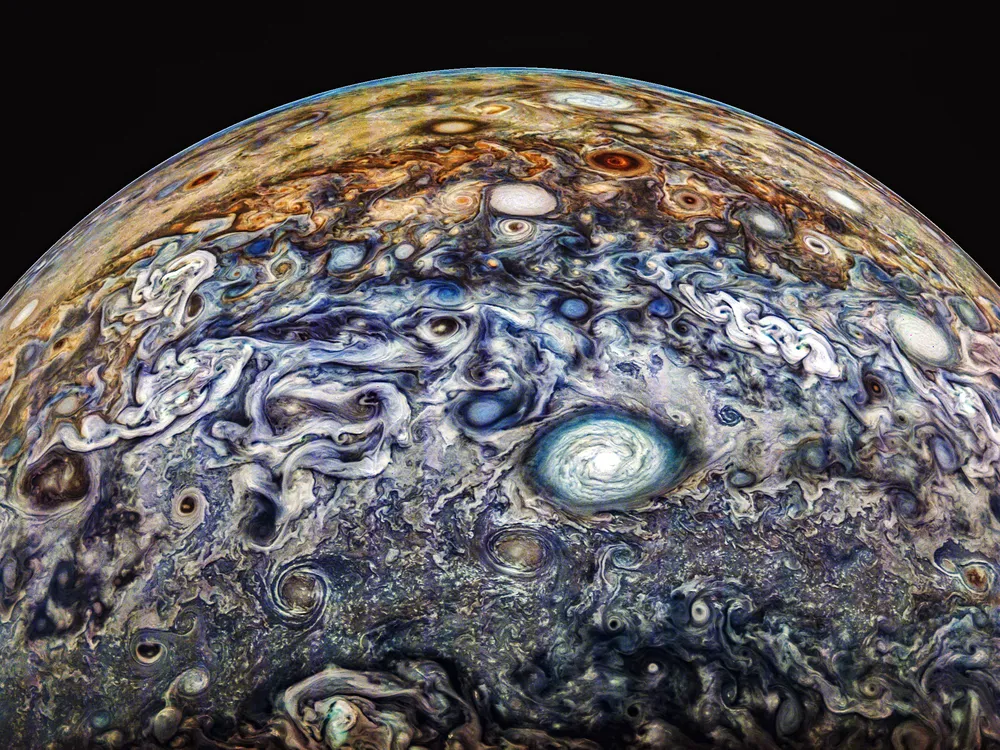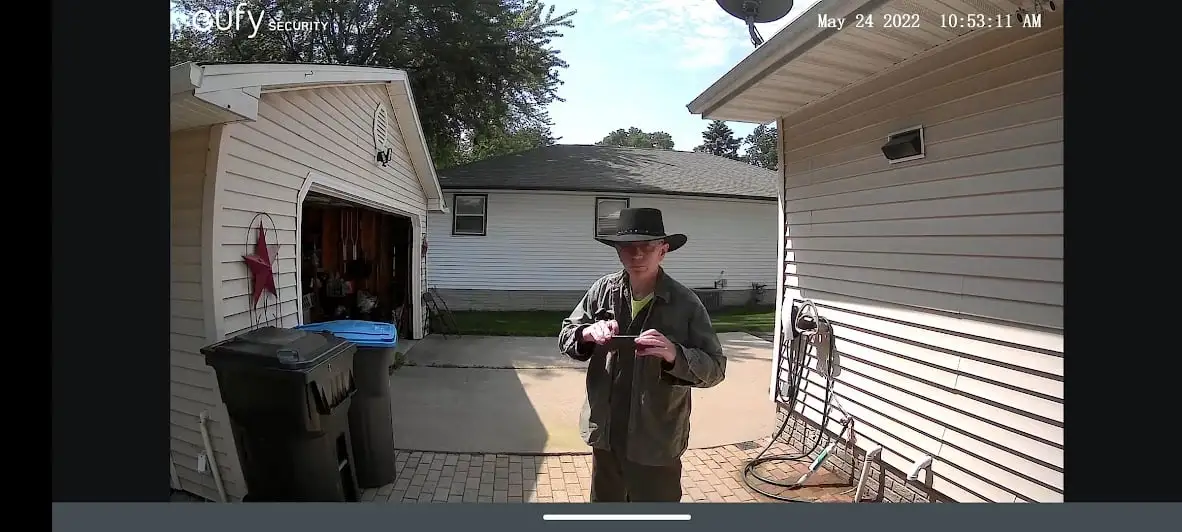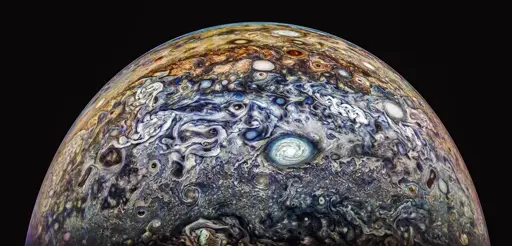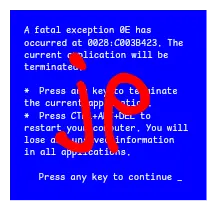
what a fucked up planet
we should live there
we should
livedie there
Reminds me of a Van Gogh.
It’s cause it’s been photoshopped. It doesn’t actually look that way
Not sure how they can get away with these artistically enhanced photographs of Jupiter. Show us what it’d look like with the naked eye from orbit, not these made up versions.
This is quite a good comparison
The JunoCam page makes Juno’s raw image data publicly accessible and allows contributors to upload modified versions of the images to highlight special features. The mission doesn’t have a team of scientists dedicated to image processing, writes Forbes’ Jamie Carter, so it relies on the work of citizen scientists to create stunning and artful interpretations of the data.
But we already have lots of pictures in the visual spectrum. We didn’t even need to send a probe for that. You can use a telescope from Earth.
Agree. I hate this “further processed” crap. Processed how? At least show the unedited source image too.
I’m gonna miss NASA :(
Project 2025?
“Never heard of it” –Liar in Chief
And at the center under miles of roiling gasses is a giant diamond.
Reminds my of that Looney Toons episode where Daffy Duck and Bugs Bunny find all this treasure and Daffy ends up with just a giant pearl. It was only giant because he was shrunken down to small size by the end of the episode.
Doesn’t it rain diamonds on Jupiter, similar to hail and snow storms on earth except that the pressures and temperatures make it rain diamonds
The “with color enhancements” part makes me just want to see it as it would naturally look.
It’s similar enhancements that show different wavelengths of light similar to national weather service radar and satellite imagery.
They can filter at infrared or other wavelengths and I’m sure now they are getting better and better at distinguishing different data at different levels in the atmosphere.
We see similar images on the nightly news weather reports. Not a big deal but it is beautiful because it is Jupiter.
looks like that one soup dish in the fridge
Absolutely wild, anyone know what part of the spectrum this is in?








